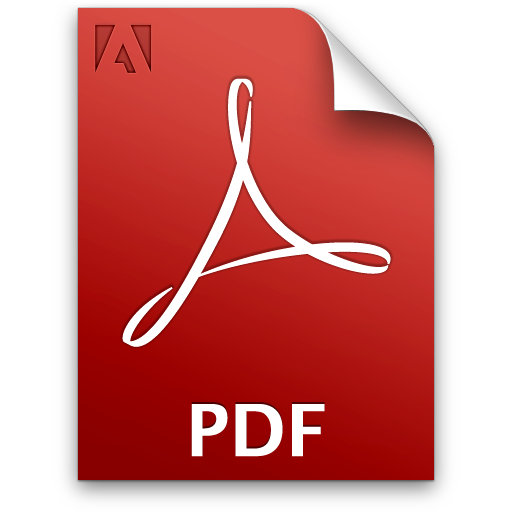Анна КЛИМ-КЛИМАШЕВСКА – доктор хабилитированный,
профессор, действительный член Международной
Ассоциации профессоров славянских
стран, заведующая кафедрой дидактики
Естественно-гуманитарного университета
(г. Седльце, Польша)
Станислава К. НАЗАРУК –
доктор нехабилитированный, член
Польского Комитета Всемирной
Организации Дошкольного воспитания
(ОМЕР), преподаватель Государственной
высшей школы им. Папы Иоанна Павла ІІ
(г. Бяла-Подляска, Польша)
e-mail: [email protected]
Анотація
У статті зосереджено увагу на актуальній і важливій проблемі виховання дітей дошкільного віку з особливими освітніми потребами. Охарактеризовано особливості складових програмної основи дошкільного виховання для дитячих садків для дітей з особливими потребами: ввиховної дидактичної роботи з дітьми з особливими освітніми потребами; формування комунікативних, соціальних навичок; підтримка розвитку мови у дітей; розвиток інтелектуальних дій, які використовують діти в вивченні і розумінні себе і свого оточення; виховання мистецтвом і ін. Приділяється увага необхідності індивідуальної діагностики, планування та реалізації індивідуальної освітньої (освітньо-терапевтичної) програми, з урахуванням кожного індивідуального випадку роботи з дітьми з особливими освітніми потребами. Необхідна адаптація методів і форм педагогічної роботи до психофізичних можливостей, темпу роботи і обмежень, пов'язаних з розвитком дітей.
Ключові слова: діти з особливими потребами; виховна дидактична робота з дітьми з особливими освітніми потребами; підтримка інтелектуального розвитку дітей; формування соціальних навичок дітей.
Повний текст:
СПИСОК ЛИТЕРАТУРЫ
1. Педагогика успешности: практикоориентированный аспект: коллективная монография / Л. В. Кондрашова, А. Клим-Климашевска, Т. Я. Довга, Е. А. Павленко и др. – Седльце (Польша): УПХ; Черкассы (Украина): ЧНУ имени Богдана Хмельницкого, 2015. – 429 с.
2. Rozporządzenie Ministra Edukacji Narodowej z dnia 30 kwietnia 2013 r. w sprawie zasad udzielania i organizacji pomocy psychologiczno-pedagogicznej w publicznych przedszkolach, szkołach i placówkach dzieciom i młodzieży ze specjalnymi potrzebami edukacyjnymi (Dz.U. 2013, poz. 532) [Распоряжение Министра Национального Образования от 30 апреля 2013 г. по делу принципов предоставления и организации психолого-педагогической помощи в государственных детских садах, школах и учреждениях детям и молодежи с особыми образовательными потребностями (Законодательный журнал 2013 год, позиция 532)]
3. Wyczesany J. Ideja integracji w nowych strukturach edukacyjnich – szanse i zagrożenia / J. Wyczesany, A. Kukułka // Dylematy pedagogiki specjałnej. – Kraków: AP, 2000. – 36 s.
Hanna KRAUZE-SIKORSKA –
Professor of Adam Mickiewicz University in Poznan,
Faculty of Educational Studies, Poznań,
Poland e-mail: [email protected]
Joanna SIKORSKA – Senior lecturer, M.A.,
Adam Mickiewicz University in Poznan,
Faculty of Educational Studies, Poznań, Poland
e-mail:[email protected]
Анотація
Life of an artist with a motor disability, although concentrated on authentic creative process that makes it possible to break free of routine and create realms with their own meaning and shape, is often confined within the horizons determined by his or her condition. This sometimes results in isolation, or even sense of social alienation caused by the conviction that the contemporary world rejects the artistic work of disabled creators. Still, individual experiences of artists with disabilities are never identical due to different life paths and disability causes, relations with other people and the world, motives for choosing the artistic path, or determinants connected with searching for specific means of expression and creative ways. In the post-modern world, in which technologies open up new possibilities, disabled artists also reach for ICT tools in their artistic searches. Those tools allow them to be active, but also deepen their reflection on their own model of creative activity. Making use of those tools is often aimed at self-fulfilment, and this tends to be one of the strongest stimuli for authentic creativity.
Keywords: ICT, the process of artistic creation, motor disabilities, homo creator, art, creativity, artistic activity, synthesis of the arts, new technologies, visual arts.
Full tex:
BIBLIOGRAPHY
1. Apolinaire, G. (1967). Kubiści. Rozważania estetyczne. [Cubists. Aesthetic considerations]. Kraków: Wydawnictwo Literackie.
2. Arnheim, R. (1978). Sztuka i percepcja wzrokowa. Psychologia twórczego oka. [Art and Visual Perception. A Psychology of the Creative Eye]. Warszawa: WAiF.
3. Bauman, Z., May T. (2004). Socjologia. [Sociology]. Poznań: Zysk i S-ka.
4. Brzoza, H. (1982). Wielość sztuk – jedność sztuki. [The multitude of arts – the unity of art]. Warszawa: WSiP.
5. De Unamuno, M. (1983). Indywiduum jako byt tragiczny. [An individual as a tragic being] In L. Kołakowski, K. Pomian Filozofia egzystencjalna [Existential philosophy]. Warszawa: PWN.
6. Dilthey, W. (2004). Budowa świata historycznego w naukach humanistycznych.[Building a historical world in the humanities]. Gdańsk: Słowo / Obraz /Terytoria.
7. Duvigniaud, J. (1970). Socjologia sztuki. [The sociology of art]. Warszawa: Państwowy Instytut Wydawniczy.
8. Eco, U. (1973). Dzieło otwarte. Forma i nieokreśloność w poetykach współczesnych. [The open work. Form and uncertainty in contemporary poetics]. Warszawa: Czytelnik.
9. Głowiński, M., Sławiński, J. (eds.) (1972). Studia o Stanisławie Ignacym Witkiewiczu. [Studies on Stanisław Ignacy Witkiewicz]. Wrocław –Warszawa- Kraków- Gdańsk: Ossolineum.
Kinga KUSZAK –
Professor of Adam Mickiewcz University,
Faculty of Educational Studies, Poznań, Poland
e-mail: [email protected]
Анотація
The article addresses the issue of a cultural society that has been perpetuated by its language. The language is an expression of the community’s social practice and experience accumulated over the span of many generations. It enables its users to transfer values, assessments, judgements, and standards of conduct which foster behaviours, actions, beliefs, and ethical and normative systems of the community. In particular, the article highlights the role of phrasems - combinations of two or more words, which play an important role in the transmission of cultural experience between successive generations of speakers. The author attempted to prove the thesis that the phrasemes established that, which is important and valuable to society in every period of its historical development. She indicated, that it is in the languages fixed sayings that the way of seeing the world of past generations, relationships between people, their preferred values, etc. have been hidden. The study cited phrasemes characteristic of the Polish language that have different sources, and then their interpretation was made, pointing towards the importance of the literal and metaphorical meaning. The final part drew attention to new phrasemes, which persist in the public consciousness thanks to the impact of advertising and mass media. Language changes and expands, although it also requires its users to care about its development and employ its abundant possibilities in a conscious manner. This abundance is hidden in every language’s phrasemes. It is therefore advisable to explore them with children and teenagers as early as possible, interpret them and search for their meanings and origins. Such activities, which I call «phraseological immersion», stimulate linguistic sensitivity and develop linguistic awareness in the contemporary users of all languages.
Keywords: society, cultural experiences, language, phrasemes, collocations, phraseology, word meanings, word origins, communication, Polish language.
Full tex:
BIBLIOGRAPHY
1. Anusiewicz, J., Dabrowska, A., Fleischer, M. (2000). Językowy obraz świata i kultura. Projekt koncepcji badawczej (The linguistic picture of the world and culture. Research concept). Język a kultura T. 13 (Language and culture T. 13). Wrocław Wydawnictwo Uniwersytetu Wrocławskiego.
2. Bańko, M. (2005). Słowo wstępne. (Preface). In J. Bralczyk Świat przez słowa (The world through words). Warszawa: PWN.
3. Baylon, Ch. Mignot, X. (2008). Komunikacja (Communication). Kraków: Wydawnictwo Flair.
4. Bąba, S., Liberek J. (2003). Mały słownik frazeologiczny współczesnego języka polskiego (Small phrasebook of contemporary polish language). Warszawa: Oficyna Wydawnicza Rytm.
5. Bąba, S., Liberek, J. (2011). Ze studiów nad frazeologią współczesnego języka polskiego (From the studies on contemporary polish phraseology). Poznań: Wyd. Poznańskie.
6. Bralczyk, J. (2009). Porzekadła na każdy dzień (Sayings for each day). Warszawa: PWN.
7. Buttler, D. (1982). Zagadnienie poprawności leksykalno-semantycznej (The issue of the lexicalsemantic correctness). In D. Buttler, H. Kurkowska, H. Satkiewicz (eds.) Kultura języka polskiego. Zagadnienia poprawności leksykalnej (słownictwo rodzime) (Culture of the polish language. Issues of lexical correctness (native vocabulary)). Warszawa: PWN.
КУШНИР Василий Андреевич –
доктор педагогических наук, профессор,
заведующий кафедрой математики
Центральноукраинского государственного
педагогического университета
имени Владимира Винниченко
e-mail: [email protected]
Анотація
Розглядаються методологічні проблеми сутності і змісту поняття «Діалогічний рівень професійної підготовки вчителя». На основі діалогу в розумінні М. М. Бахтина, загальнолюдських цінностей, онтологічного підходу досліджується така нескінченно-можлива система як педагогічний процес. Діалог розглядається як нова цілісність «учитель-учень» на принципах спів-праці, спів-сумісності, спів-переживання, спів-участі, співіснування. Діалог базується на добровільній і взаємній відкритості вчителя і учнів, на бахтінському не-алібі поведінки вчителя і учнів. Діалог – це свобода вибору у вигляді відповідальних вчинків за себе і за другого, морально-духовна спрямованість педагогічного процесу.
Ключові слова: діалог, діалогічний рівень професійної підготовки вчителя, онтологія, людські цінності, гуманітарність педагогічного процесу, нескінченно-можлива реальність.
Повний текст:
БИБЛИОГРАФИЯ
1. Ананьев Б. Г. О проблемах современного человекознания / Б. Г. Ананьев. – М.: Наука, 1977. – 380 с.
2. Ананьев В. Г. Человек как предмет познания / Б. Г. Ананьев. – Л.: ЛГУ, 1968. – 340 с.
3. Бахтин М. М. К философии поступка / М. М. Бахтин / Работы 20-х годов. – К.: Next, 1994. – С. 11–68.
4. Бахтин М. М. Проблемы поэтики Достоевского / Михаил Михайлович Бахтин. – М.: Советский писатель, 1963. – 362 с.
5. Библер В. С. Михаил Михайлович Бахтин или поэтика культуры / В. С. Библер. – М.: Изд. Прогресс, Гнозис, 1991. – 176 с.
6. Библер В. С. От наукоучения – к логике культуры: Два философских введения в двадцать первый век / В. С. Библер. – М.: Изд. Полит. лит., 1991. – 413 с.
7. Бінарна технологія створення і проведення бінарних занять з алгебри і інформатики // Математика в рідній школі. – 2016. – № 1. – С. 32– 38.
8. Дьяконов Г. В. Активные методы группового обучения психологии: диалогический подход : учебно-методическое пособие для преподавателей и студентов психологических
факультетов университетов и пединститутов / Г. В. Дьяконов, И. А. Добрянский – Кировоград, 2004. – 189 с.
RYBINSKA Yuliia Anatoliivna –
Doctor of Pedagogy, Associated Professor,
Head of the Department of Foreign Languages,
Kyiv National University of Culture and Arts
Анотація
Стаття присвячена теоретичному та методичному дослідженню специфіки формування творчих навичок за допомогою творчого письма у майбутніх філологів та підвищення рівня професійної комунікативної компетентності у класі. Розкрито перспективу використання креативного перекладу, а також вимоги до їх вибору. Відзначено, що вірші є важливим ресурсом під час вивчення нових термінів та, загалом, вони підвищують рівень професійної комунікативної підготовки перекладачів.
Ключові слова: професійна комунікативна підготовка, майбутні філологи, креативне письмо, комунікативна компетентність, творчий переклад, комунікативна підготовка, експериментально підтверджена система.
Повний текст:
REFERENCES
1. Carolyn P. Sobel (2001). The Cognitive Sciences: An Interdisciplinary Approach. Unoversity of California. SAGE publications.
2. Common European Framework of Reference for Languages: learning, teaching and assessment (2001). Trim J. L.M. (Ed.). Cambridge University Press.
3. Cronin Michael (2003). Translation and Globalisation. London: Routledge.
4. Ganicheva T. V. (2008) Metodyka navchannia maibutnikh filolohiv usnoho anhlomovnoho dvostoronnoho perekladu u haluzi prav liudyny. [Methodology of teaching of future philologists of bilateral English-language interptetion in the field of human rights]. Kharkov
5. Healey S. P. (2010). The Rise of Creative Writing and the New Value of Creativity Dissertation.
Abstracts International, Section A:The Humanities Social Science. University of Minnesota.
6. Krylova-Grek, Yu. M. (2007). Psykholinhvistychni osoblyvosti perekladu semantychnykh odynyts. [The psycholinguistic peculiarityes of translation of semantic units]. Kyiv.
7. Marc Orlando (2016). Training 21st century translators and interpreters: At the crossroads of practice, research and pedagogy. Frank & Timme GmbH.
8. Mayers Tim (2005). (Re) Writing Craft: Composition, Creative Writing, and the Future of English Studies. Pittsburgh. University of Pittsburgh Press.
9. Micaela Muñoz-Calvo, Carmen Buesa-Gómez (2010). Translation and Cultural Identity: Selected Essays on Translation and Cross-Cultural Communication. Cambridge Scholars Publishing; New edition edition.
10. Nikolaieva, S. Yu. (1996). Praktykum z metodyky testuvannia inshomovnoi leksychnoi kompetentsii (na materiali anhliiskoi movy). [Practice on the methodology of testing foreign language lexical competence (on the material of the English language)]. Kyiv.




